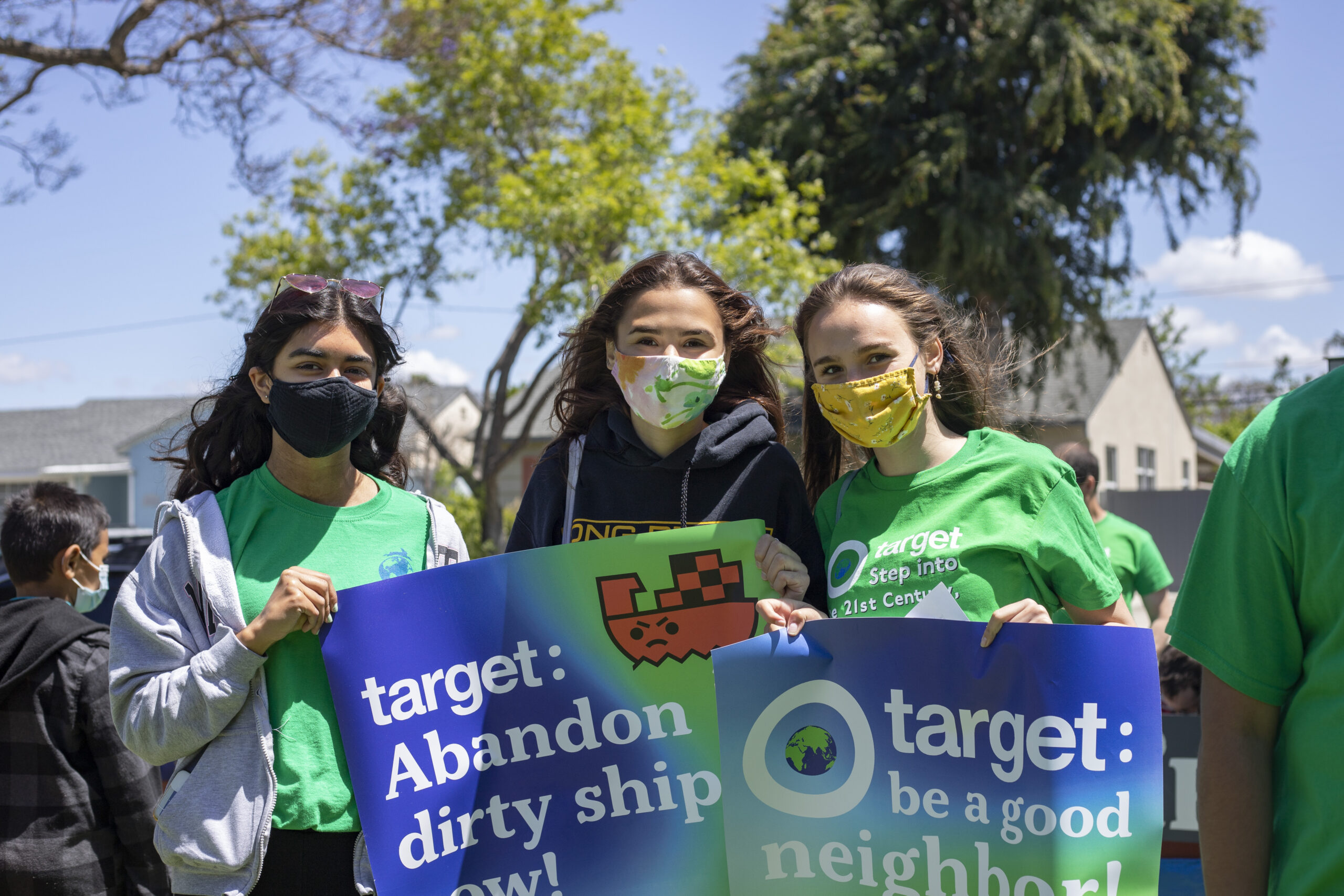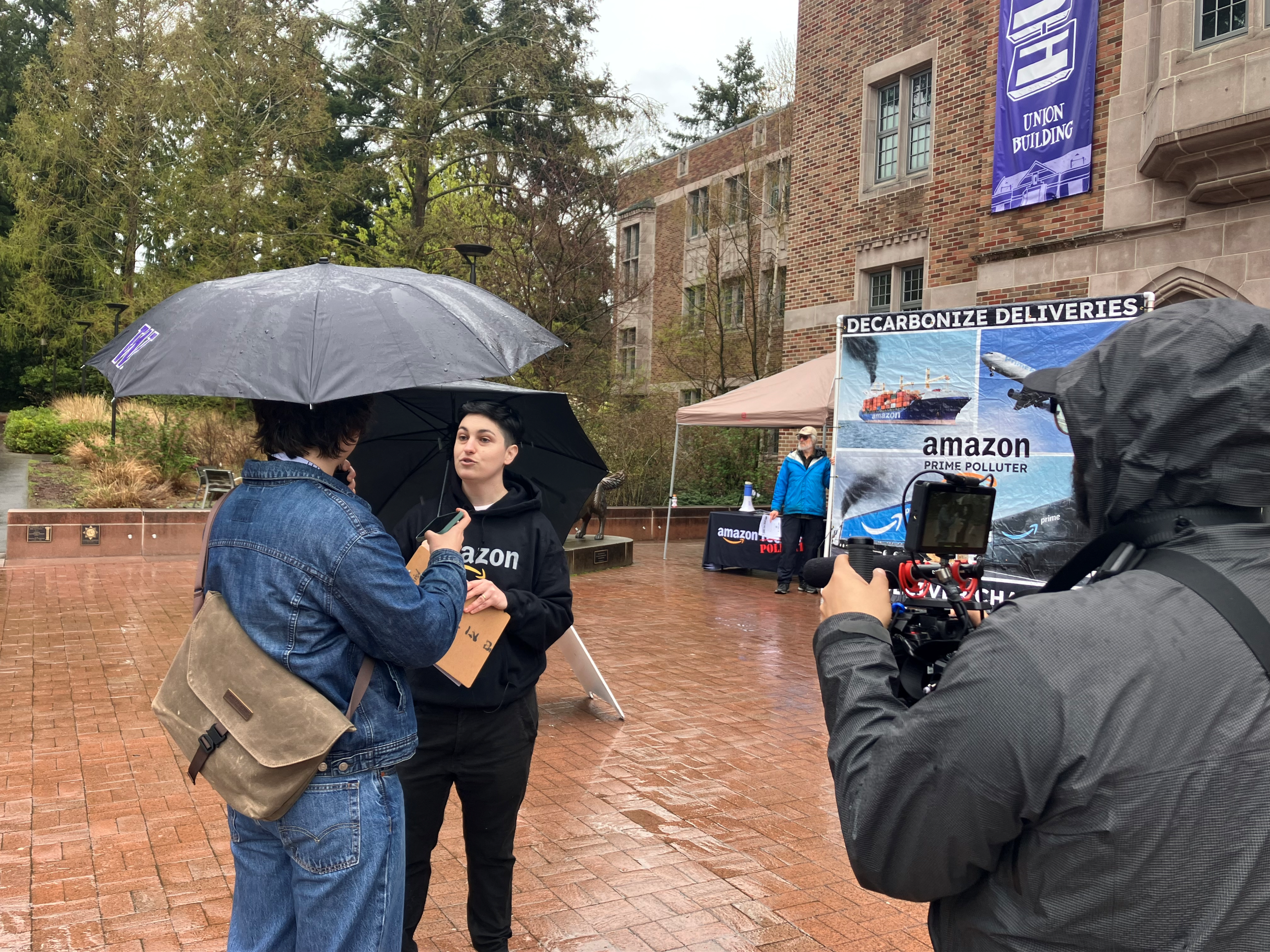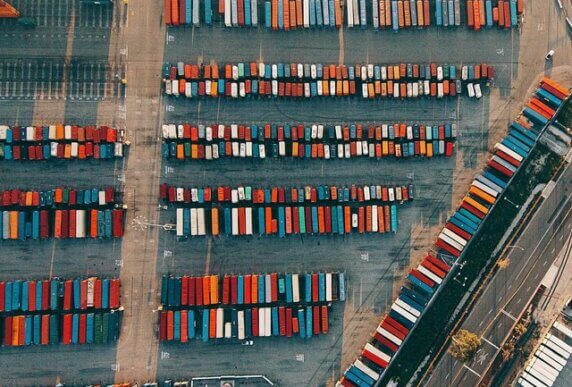


Dear Mr. Cornell,
We, the undersigned members of the Los Angeles and Long Beach Ship It Zero coalition, consisting of climate, environmental justice, public health, and faith groups, write to request a meeting with you in Southern California regarding health-harming pollution from your ocean cargo imports.
While international shipping is frequently low-profile, air pollution emissions from this sector have very real health impacts on our neighborhoods. We know that Target deeply cares about issues of equity, justice and public health. Your continued inaction on addressing the pollution from cargo shipping in your supply chain does not align with these core values.
Target is the third largest retail importer into the United States, and relies heavily on West Coast ports. Between 2018 – 2020, your company emitted approximately 6.4 million tonnes of CO2e to import 1.8 million Twenty Foot Equivalent Units (TEUs), including 727,146 TEUs through the San Pedro Bay ports. In addition to climate pollution, the fossil-fueled maritime emissions in your supply chain also emitted tens of thousands of metric tons of health damaging criteria pollutants, including SOx, NOx, particulate matter, black carbon, and carbon monoxide. Much of your ship’s air pollution is concentrated in the Los Angeles and Long Beach port-adjacent neighborhoods of San Pedro, Wilmington, and West Long Beach, where residents experience 8 years shorter life expectancy than the Los Angeles County average.
These pollutants are known to pose serious risks to public health, including increased rates of premature deaths from cancer and cardiovascular disease, as well as childhood asthma. It is an unfortunate reality that working-class, Black and Brown communities living near large industrial ports bear the greatest burden from cargo shipping pollution. Children in our communities are among the most vulnerable to the health impacts of air pollution exposure. According to the Greater Long Beach Interfaith Community organization, 15% of Long Beach children suffer from asthma, compared to 8% overall in Los Angeles County.
This problem has only worsened during the pandemic. As consumers were stuck at home, many turned to online shopping. The resulting surge in demand for imported goods caused major disruptions in the global supply chain. Ships idled near ports for weeks and sometimes over a month while waiting for an available berth to unload cargo, choking our communities. In 2021, the port of LA/Long Beach saw a record-breaking over 100 ships offshore awaiting berths, causing an increase in lung-damaging particulate matter emissions by the equivalent of 100,000 big rig trucks per day, according to the California Air Resources Board.
Due to the reliance of Target on West Coast ports, your company had an outsized role in the port congestion crisis and resulting increases in air pollution. We are encouraged to see many retail brands taking steps to reduce and eliminate the air and climate pollution from the maritime shipping in their supply chains, including major retail brands such as Amazon and IKEA.
The city councils of Los Angeles and Long Beach, the cities home to the largest port complex in the Western Hemisphere that Target disproportionately imports through, have called for 100% zero-emissions ocean shipping at their ports this decade. Read more about the Los Angeles and Long Beach resolutions.
Target can catalyze significant change in the shipping sector by leveraging your power as a heavyweight in the retail sector and a major cargo carrier client. If your company were to urgently commit to zero emissions maritime shipping on an ambitious timeframe, it would send a clear market signal to carriers – those that own and operate container vessels – to accelerate their transition to fossil-free, zero emissions cargo ships in order to meet this growing demand.
Solutions exist today to reduce and eliminate the air and climate pollution from international shipping. Cargo vessels can reduce speeds to lower fuel consumption, implement efficiency retrofits on existing ships, immediately switch to the cleanest fuel currently available – marine gas oil – while transitioning to fossil-free vessels, and plug vessels into the local electricity grid – commonly called “shore power” – while at berth to eliminate localized air pollution while in port. Cargo carriers (the companies that own and/or operate the ships) can and should invest in zero emissions shipping technologies, such as green hydrogen-based fuels, renewable-powered charging stations for ships idling offshore, battery-power storage, and wind-assisted propulsion.
We urge you to be the climate and public health champion that port and coastal communities need by committing to immediately reduce and completely eliminate maritime emissions this decade. We offer an invitation for you to meet with us here in Southern California to discuss your company’s plans for immediate maritime decarbonization.
Sincerely,
East Yard Communities for Environmental Justice
Board of Social Justice and Outreach, First Congregational Church of Long Beach
Social Justice Council, Unitarian Universalist Church of Long Beach

Recent Updates





